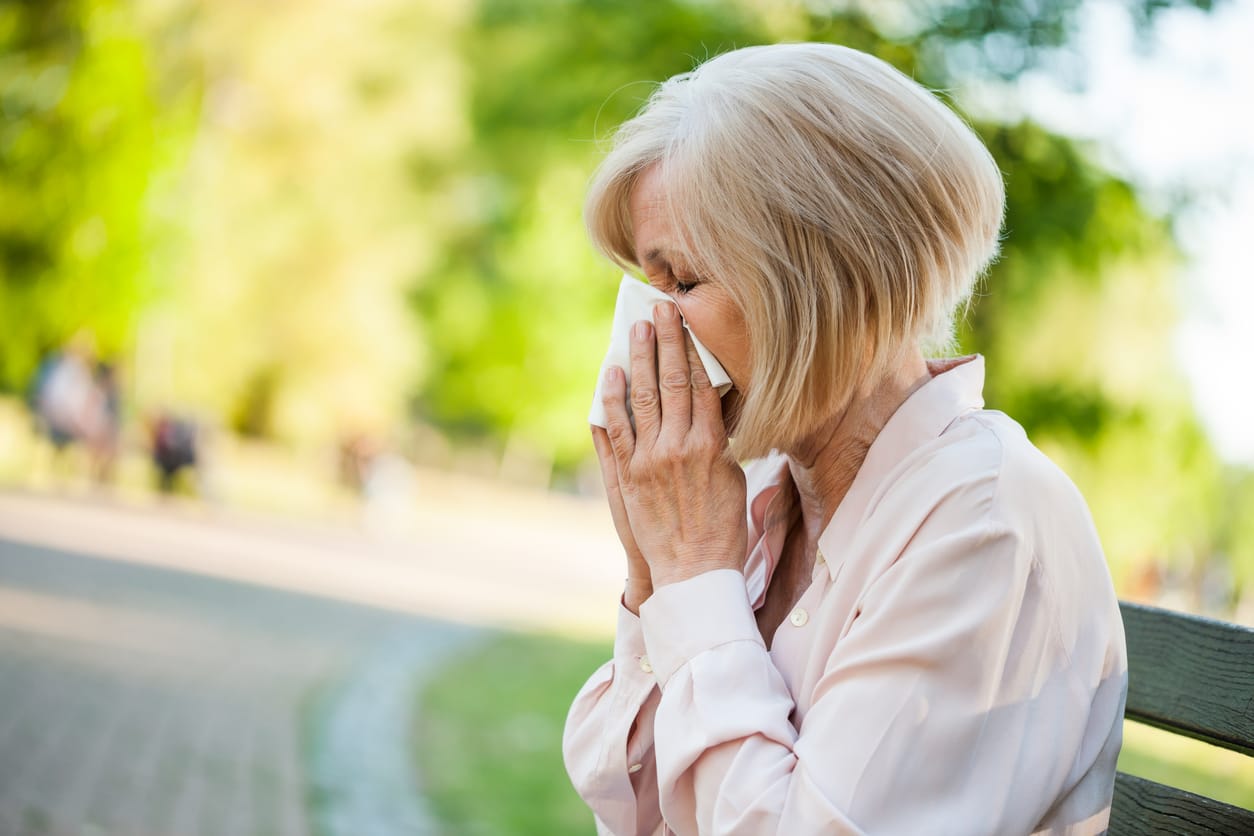Summer is a season cherished for its warmth and vibrancy, yet for seniors, it brings a unique set of challenges, particularly in managing allergies. Protecting our elderly loved ones from seasonal allergens is not just about comfort—it's essential for preserving their health and well-being. Understanding the significance of managing summer allergies and the impact of common allergens on elderly health is crucial in ensuring they enjoy a safe and enjoyable season ahead.
Insights into why the elderly are more vulnerable to allergens
Seniors are more vulnerable to allergens due to age-related changes in their immune systems. As we age, immune responses weaken, making elderly individuals more susceptible to allergic reactions. This heightened sensitivity can exacerbate respiratory conditions and other health issues, necessitating careful management of summer allergies.
Overview of typical summer allergens such as pollen, mold spores, and dust
Summer brings not only warmth but also a surge in allergens that can worsen symptoms for our elderly loved ones. Pollen, such as grass pollen affecting up to 70% of allergy sufferers, and ragweed pollen impacting 20% of hay fever sufferers in the US, are major concerns during late spring and summer months according to the American College of Allergy, Asthma & Immunology.
Tree pollen, lingering into early summer, adds to the mix. Mold spores thrive in warm, humid conditions, affecting approximately 10% of Americans with allergies according to the Asthma and Allergy Foundation of America. Dust mites, which are prevalent year-round but worsened by summer humidity, reside in bedding and furniture, exacerbating allergy symptoms according to the Mayo Clinic.
Understanding these allergens and their peak seasons empowers caregivers to minimize exposure, ensuring a more comfortable summer for our elderly loved ones.
Tips for Managing Allergies
Managing allergies for elderly loved ones requires a proactive approach both indoors and outdoors to ensure their comfort and well-being.
Indoor Allergy Management
Indoor spaces can harbor allergens like dust mites and mold, exacerbating symptoms. Keep windows closed during high pollen seasons and use air conditioning with HEPA filters to trap allergens effectively. Regular home cleaning is crucial, focusing on dusting surfaces and vacuuming carpets and upholstery to minimize allergen buildup indoors.
Outdoor Allergy Management
Monitor pollen counts regularly and plan outdoor activities during times when pollen levels are lower, typically in the late afternoon or after rain. Encourage the use of protective clothing like hats and sunglasses to shield against pollen exposure. After spending time outdoors, suggest a routine that includes washing clothes and showering to remove allergens from hair and skin, reducing the risk of allergic reactions indoors.
Medical Management of Allergies
Navigating allergy management for elderly loved ones often requires a tailored medical approach to ensure their health and comfort.
Consulting healthcare providers is crucial for developing personalized allergy management plans:
- Schedule regular check-ups to discuss allergy symptoms and potential triggers.
- Conduct allergy tests to identify specific allergens causing reactions.
- Adjust medications or treatment plans based on individual health needs and allergies.
When considering safe options for managing allergy symptoms, it's essential to discuss suitable over-the-counter medications like antihistamines or nasal sprays with healthcare providers:
- Ensure these medications are appropriate for seniors and do not interact with existing prescriptions.
- Explore natural remedies such as saline rinses or herbal supplements under medical guidance to ensure effectiveness and safety.
- Be vigilant about potential interactions between allergy medications and existing prescriptions, ensuring comprehensive management without compromising their elderly loved ones' health and well-being.
Lifestyle Adjustments
Supporting our elderly loved ones often involves making thoughtful lifestyle adjustments to manage allergies and promote overall well-being.
Dietary Changes to Manage Inflammation and Allergies
Consider incorporating anti-inflammatory foods into their diet:
- Include omega-3 fatty acids found in fish like salmon or flaxseeds, known for their anti-inflammatory properties.
- Opt for fresh fruits and vegetables rich in antioxidants to support immune function and reduce inflammation.

Staying Hydrated and Indoor Exercise
Encourage regular hydration to help flush out toxins and allergens from the body:
- Ensure they drink plenty of water throughout the day, supplemented with herbal teas or infused water for added hydration.
- Promote indoor exercises such as yoga or gentle stretching to maintain fitness without exposure to outdoor allergens.
Utilizing Technology to Monitor Air Quality
Introduction to Apps for Monitoring Air Quality and Pollen Levels
Apps designed to monitor air quality and pollen levels provide valuable insights into environmental conditions, offering real-time updates on allergen concentrations. These tools empower elderly individuals, particularly those with respiratory illnesses or allergies, to make informed decisions about outdoor activities and indoor precautions.
Statistical data underscores the importance of such tools: The World Health Organization estimates that 99% of the global population breathes polluted air, contributing to over 7 million deaths annually according to WHO. Additionally, allergic rhinitis, affecting 10-30% of the global population, underscores the widespread impact of pollen allergies as reported by ACAAI.
By providing real-time data, these apps can raise awareness, encourage preventative measures, and empower elderly individuals to mitigate health risks associated with poor air quality and pollen exposure, thereby promoting their well-being and quality of life.
Benefits of Air Purifiers in Reducing Indoor Allergens
Air purifiers play a crucial role in creating an allergen-free indoor environment. They effectively filter out pollen, dust, mold spores, and other irritants, which can alleviate allergy symptoms. When selecting an air purifier, consider models with HEPA filters for optimal allergen removal and ensure proper maintenance to sustain their effectiveness.
Utilizing Smart Home Technology for Allergen-Free Living
Smart Home Technology offers innovative solutions to maintain an allergen-free environment:
- Smart thermostats can regulate humidity levels, reducing mold growth.
- Automated air purifiers and HVAC systems can be controlled remotely, ensuring continuous air quality management.
- Smart sensors provide real-time data on air quality metrics, empowering caregivers to take proactive measures against allergens.





